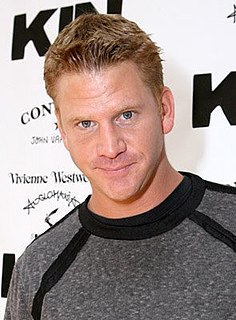A Quote by Erin Brockovich
I'm concerned that we don't address the water pollution problems in other countries. If we move forward and don't clean up the messes of the past, they'll just get swept under the rug.
Related Quotes
Managers are not confronted with problems that are independent of each other, but with dynamic situations that consist of complex systems of changing problems that interact with each other. I call such situations messes. Problems are extracted from messes by analysis. Managers do not solve problems, they manage messes.
... laws governing pollution tend to move pollutants from one medium to another. So, for example, we scrub SO2 from power plants only to dispose toxic sludge on land. We "clean" water only to disperse toxic-laced solids on farmland or landfills. Pollution control becomes a kind of giant shell game by which we move pollutants between air, water, groundwater, and land.
The PFOA, PFOS is is a real concern and people need to be concerned about it and the water systems need to be concerned about it. But when you only focus on that, it could take resources away from other issues or problems that the water systems have diverted to just this. And this may not be a huge problem in every community.
If you lack initiative, recognize that the problem comes from the inside, not from others. Determine why you hesitate to take action. Does risk scare you? Are you discouraged by past failures? Do you not see the potential that opportunity offers? Find the source of your hesitation, and address it. You won't be able to move forward on the outside until you can move forward on the inside.
As we move forward, I am looking for a new leader of the Chicago Police Department to address the problems at the very heart of the policing profession. The problem is sometimes referred to as "the thin blue line." The problem is other times referred to as "the code of silence." It is this tendency to ignore. It is the tendency to deny. It is the tendency, in some cases, to cover up the bad actions of a colleague or colleagues.





































